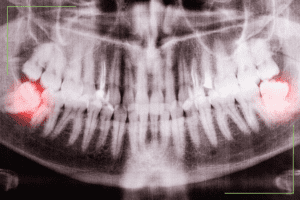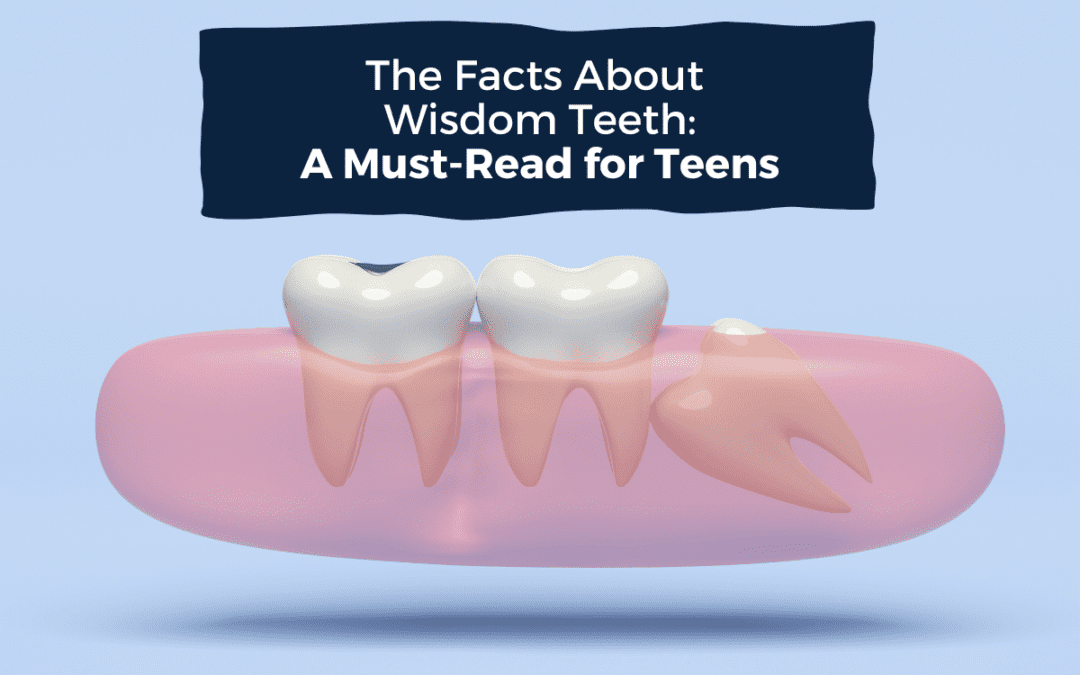If you’re a teenager or a parent of one, you’ve probably noticed the many changes happening in your body or your child’s body, and one of these significant changes is the emergence of wisdom teeth. These third molars usually appear in your late teens or early 20s.
They can be overwhelming, especially if you’re unsure about what to expect or how to handle any potential issues.
What are Wisdom Teeth?
As we briefly discussed above, wisdom teeth, also known as third molars, are the last set of teeth to emerge in the back of the mouth.
They are called “wisdom” teeth because they typically appear when a person is older and presumably wiser, usually between the ages of 17 and 21. However, the timing can vary from person to person.
Wisdom teeth can grow properly aligned and cause no issues. Unfortunately, this is not always the case. Many people experience dental problems related to their wisdom teeth, such as crowding, impaction, or infections.
Common Problems Associated with Wisdom Teeth
Impaction
Sometimes, wisdom teeth just don’t have enough room to grow properly. When they grow at an angle or only partially break through the gums, it’s called impaction.
Impacted wisdom teeth can cause pain, damage to other teeth, and even infection if left untreated.
Crowding
Even if the wisdom teeth manage to grow straight, they might still cause problems for the other teeth. When there’s not enough space in your jaw, wisdom teeth can push against the other molars, causing crowding and shifting.
However, it’s important to note that wisdom teeth aren’t the sole reason for crowding in the lower jaw.
Decay and Gum Disease
Since they’re located at the very back of the mouth, almost near the entrance to the throat, wisdom teeth can be challenging to keep clean.
Food particles and bacteria can easily become trapped around and in the deep grooves of these teeth, leading to the formation of plaque and tartar, which can progress to tooth decay and gum disease.
Partially erupted wisdom teeth are especially susceptible to these issues since the entire tooth surface cannot be accessed for proper cleaning.
Do You Need to Get Wisdom Teeth Removed?
While some people may not experience any issues with their wisdom teeth, the absence of pain doesn’t necessarily mean there are no potential problems. Your dentist is the most qualified person to assess your wisdom teeth and determine if they need to be removed.
That’s why regular dental check-ups are crucial, as they allow your dentist to monitor the development of your wisdom teeth and identify any potential issues early on.
Stay on Top of Your Oral Health
Regardless of whether you need your wisdom teeth removed, maintaining good oral hygiene is essential for your overall health. You should brush your teeth twice a day with fluoride toothpaste and floss daily.
And for parents, encourage your teenager to adopt these healthy habits and lead by example. If you or your teen are unsure about proper brushing and flossing techniques, don’t hesitate to ask your dentist for guidance.
Read Also: The Potential Risks of Piercings to Your Teen’s Oral Health
Looking for a trusted dentist for your teen in Lafayette or the surrounding areas? Our dental practice specializes in providing exceptional care for teenagers. With years of experience, our team is dedicated to helping your teenager maintain optimal dental health.
We offer a range of dental services tailored to adolescents, all within a comfortable and welcoming environment. Schedule an appointment today and give your teenager the gift of excellent oral health!
